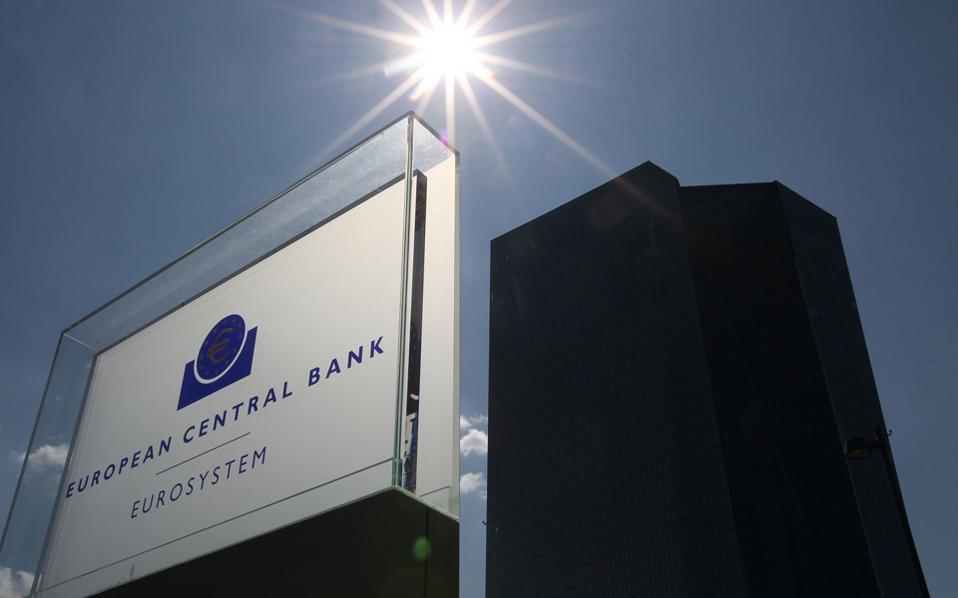ECB stimulus may finally reach Greece, but “what’s the use anyway?”

European Central Bank purchases of Greek bonds, which may start in a month at the earliest, will be too small to push the country's borrowing costs low enough for Athens to regain market access soon.
ECB President Mario Draghi has said the bank might have a two-month window after a bailout deal is settled to buy Greek bonds, after which it will quickly hit its self-imposed limit of holding a third of a country's eligible debt, data shows.
The Greek government hopes to conclude the deal before Aug. 20, but the euro zone's central bank could still hold off from buying bonds until it deems there is credible implementation.
Even opportunistic investors who made profits by hoovering up Greek debt in a sale last year and selling it on immediately say the ECB's presence will not encourage them to return after months of political and economic upheaval in Greece.
This so-called "front-running", where investors buy bonds to sell on to the ECB, has pushed borrowing costs in nearly all other euro zone countries near record lows this year.
Despite the prospect of ECB purchases, Greek two-year bonds currently yield over 25 percent, five times more than the level at which they were issued last year in one of the fastest market comebacks for a country that had defaulted.
They are double the level of yields on longer-term bonds, a sign that investors fear Greece will again fail to repay its debts. Even the bankers that earned fees from managing Greece's bond sales in 2014 say there is no interest from investors.
"(ECB bond-buying) is not going to make much difference and what's the use anyway? … It's not like it is going to ease their comeback to the market," said Vincent Chaigneau, global head of rates and FX strategy at Societe Generale.
The reason the ECB's quantitative easing scheme will have less of an impact on Greek yields than elsewhere is because the bank already holds a sizable chunk of Greek bonds bought under its previous Securities Markets Programme (SMP).
Data from the ECB shows that it held roughly 20 billion euros of these SMP bonds at the end of 2014. Subtracting the bonds repaid this week and those that fall due on Aug. 20, that total should drop to roughly 13 billion euros.
At this point, assuming Greece has met the terms of a new bailout, the ECB could start buying its bonds under QE. But purchases will probably have to stop once it has bought another 2-3 billion euros.
The ECB limits its purchases to a third of a country's outstanding securities that fall within its eligible maturity range, so as not to interfere in any potential bondholder decision to restructure debt.
According to Societe Generale calculations, the pool of eligible Greek debt will be 47 billion euros at the end of August. That puts the limit at 15.7 billion euros.
Once the cap is hit, the ECB will not be able to buy more Greek debt until its next set of SMP bonds — totalling just 52.8 million euros, according to Reuters data — expire in April 2016. Another 2.3 billion euros of SMP bonds mature next July, the last before the ECB is due to end QE in September 2016.
Moreover, despite Cyprus passing its latest bailout review, ECB data at the end of last month showed no QE purchases of Cypriot bonds.
No help
Martin Wilhelm, founder of IfK, an advisor of mutual funds based in Germany, said that even with ECB bond buying, the risks in Greece are now too high to tempt him back into this debt.
"ECB was buying Greek bonds (under SMP) when they were going down, before the (2012) restructuring. It didn't help with anything," said Wilhelm. "If they're bankrupt and they default a second time it (ECB buying) does not matter."
IfK runs a bond fund with Acatis. That fund owned Greek bonds as recently as last year.
Sovereign debt bankers who managed the sale of two bonds for Greece in 2014, speaking to Reuters on condition of anonymity, said the Greek debt agency had not been in contact for months and they had received no interest from investors in Greek bonds.
"If (the ECB starts buying) good for them. I can't. I just can't touch them," said Guido Barthels, CIO at Luxembourg-based Ethenea, who owned some of the Greek bonds issued last year for a short period of time.
[Reuters]





